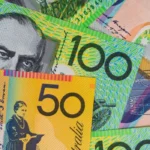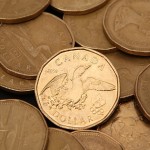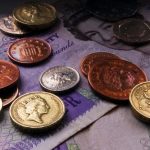On Wednesday (in GMT terms) gold for delivery in December traded within the range of $1,251.2-$1,260.5. Futures closed at $1,253.8, edging down 0.17% compared to Tuesday’s close. It has been the 191st drop in the past 357 trading days and also a second consecutive one. The daily low has been a level not seen since October 7th, when the commodity went down as low as $1,243.2 per troy ounce. The precious metal has increased its drop to 4.81% so far during the current month, after gaining 0.43% in September.
On the Comex division of the New York Mercantile Exchange, gold futures for delivery in December were edging up 0.50% on Thursday to trade at $1,260.1 per troy ounce. The precious metal went up as high as $1,263.5 during mid-Asian trade, while the current daily low was at $1,254.7 per troy ounce, recorded during the early phase of the Asian trading session.
The US Dollar Index, a gauge reflecting the relative strength of the greenback against a basket of 6 other major currencies, was edging down 0.16% on the day at a level of 97.83, after going up as high as 98.12 earlier. The latter has been the highest level for this index since March 10th. The gauge has extended its advance to 2.56% so far in October, following a 0.65% drop in September.
Earlier on Thursday gold futures received a boost, as the latest trade data out of China brought about concerns over the health of the worlds second biggest economy. The General Administration of Customs reported that the nations trade surplus had shrunk to USD 41.99 billion in September from USD 59.60 billion in September 2015, while it has been the lowest figure since March 2016. Chinese exports fell 10.0% year-on-year in September to reach USD 184.51 billion, while total imports unexpectedly dropped 1.9% year-on-year to USD 142.52 billion.
At the same time, the Minutes from the Federal Open Market Committees policy meeting, held on September 20th-21st, revealed that the decision to keep borrowing costs intact was a close call, while policy makers agreed that the case for a hike had gained strength over the past months. According to excerpts from the Minutes, released on Wednesday: “Participants generally agreed that the case for increasing the target range for the federal funds rate had strengthened in recent months. Many of them, however, expressed the view that recent evidence suggested that some slack remained in the labor market.”
“In contrast, some other participants believed that the economy was at or near full employment and inflation was moving toward 2 percent. They maintained that a further delay in raising the target range would unduly increase the risk of the unemployment rate falling markedly below its longer-run normal level, necessitating a more rapid removal of monetary policy accommodation that could shorten the economic expansion. In addition, several participants expressed concern that continuing to delay an increase in the target range implied a further divergence from policy benchmarks…”
“Among the participants who supported awaiting further evidence of continued progress toward the Committees objectives, several stated that the decision at this meeting was a close call. Some participants believed that it would be appropriate to raise the target range for the federal funds rate relatively soon if the labor market continued to improve and economic activity strengthened, while some others preferred to wait for more convincing evidence that inflation was moving toward the Committees 2 percent objective.”
Market players now shift their focus to Fridays reports on US retail sales and consumer sentiment for further clues on macroeconomic environment, as well as to the public appearances of several Fed officials. At 16:15 GMT today the Federal Reserve President for Philadelphia and also a FOMC member, Patrick Harker, is expected to speak on the economic outlook in front of the World Affairs Council of Philadelphia, while the Fed President for Boston and a member of the Committee as well, Eric Rosengren, is to speak at “The Elusive “Great” Recovery: Causes and Implications for Future Business Cycle Dynamics” conference in Boston tomorrow.
Meanwhile, investor medium-term rate hike expectations remained unchanged at four-month highs.
According to CME’s FedWatch Tool, as of October 12th, market players saw an 8.3% chance of a rate hike occurring at the Federal Reserve’s policy meeting in November, or unchanged compared to the prior three business days, and a 69.5% chance of a hike in December, or unchanged compared to the preceding two business days. As far as the February 1st 2017 meeting is concerned, the probability of such a move was seen at 71.9% on October 12th, or unchanged from the prior two business days.
Elsewhere, silver futures for delivery in December were gaining 0.66% on the day to trade at $17.620 per troy ounce, after going up as high as $17.700 a troy ounce during the mid phase of the Asian trading session.
Daily, Weekly and Monthly Pivot Levels
By employing the Camarilla calculation method, the daily levels of importance for gold are presented as follows:
R1 – $1,254.7
R2 – $1,255.5
R3 (Range Resistance – Sell) – $1,256.4
R4 (Long Breakout) – $1,258.9
R5 (Breakout Target 1) – $1,261.9
R6 (Breakout Target 2) – $1,263.1
S1 – $1,252.9
S2 – $1,252.1
S3 (Range Support – Buy) – $1,251.2
S4 (Short Breakout) – $1,248.7
S5 (Breakout Target 1) – $1,245.7
S6 (Breakout Target 2) – $1,244.5
By using the traditional method of calculation, the weekly levels of importance for gold are presented as follows:
Central Pivot Point – $1,272.6
R1 – $1,301.9
R2 – $1,352.0
R3 – $1,381.3
R4 – $1,410.7
S1 – $1,222.5
S2 – $1,193.2
S3 – $1,143.1
S4 – $1,093.1
In monthly terms, for the yellow metal we have the following pivots:
Central Pivot Point – $1,326.7
R1 – $1,348.0
R2 – $1,378.8
R3 – $1,400.1
R4 – $1,421.3
S1 – $1,295.9
S2 – $1,274.6
S3 – $1,243.8
S4 – $1,212.9





